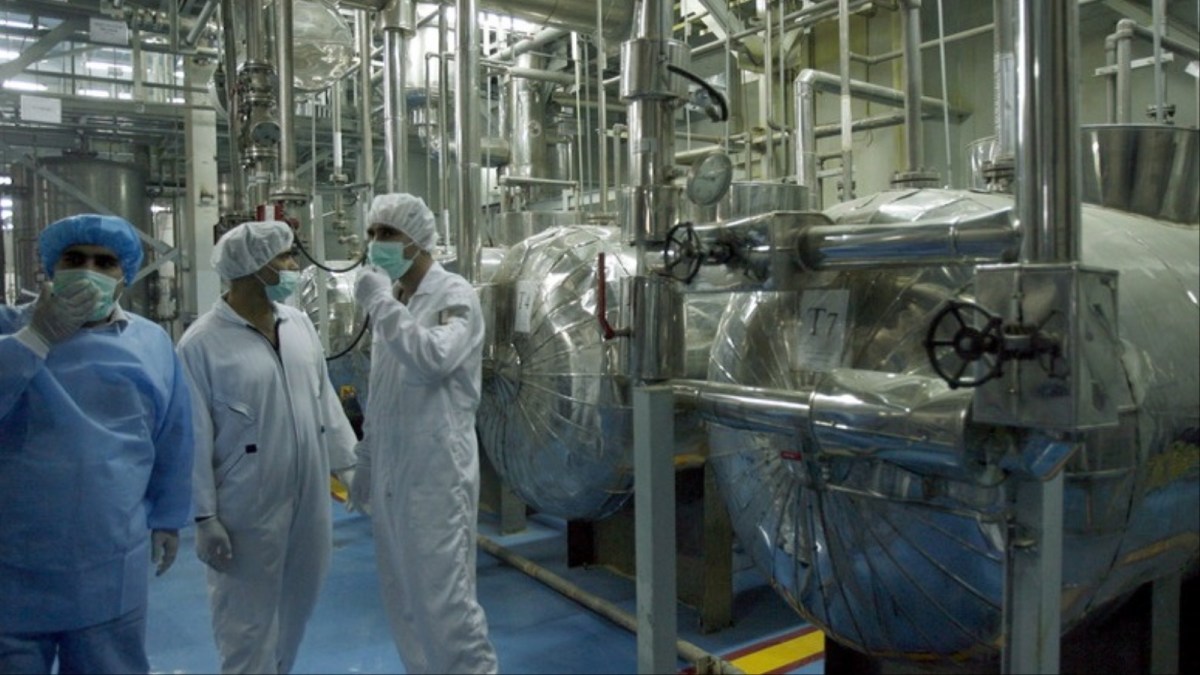A report by the International Atomic Energy Agency confirmed that the agency is in discussion with Iran regarding the monitoring of uranium particles enriched to 83.7% at the Fordow facility, which is very close to the degree of purity required to make nuclear weapons.
This comes while a senior official at the US Department of Defense (the Pentagon) announced on Tuesday that Iran could produce enough fissile material to make one nuclear bomb "within 12 days."
According to the report, Iran informed the agency that unintended fluctuations in enrichment levels may have occurred during the transition period when the 60% enrichment process began in November 2022, or during the replacement of the feed roller.
The report stated that discussions are underway between the agency and Iran to clarify the matter.
The agency had said earlier Tuesday that its inspectors had detected uranium particles enriched to 83.7% at the secret Fordow nuclear site.
It added that inspectors discovered on January 21 that two sets of IR-6 centrifuges at Iran's Fordow facility were configured in a "fundamentally different" way than previously reported.
She explained that her inspectors took samples the next day, which showed a purity of uranium particles of up to 83.7%, which is slightly less than the 90% necessary to produce a nuclear bomb.
fissile material
Meanwhile, a senior Pentagon official said Tuesday that Iran could produce enough fissile material for a single nuclear bomb "within 12 days," down from the year it was estimated to have taken Tehran when the 2015 nuclear deal was in place. valid.
Colin Kahl, US Under Secretary of Defense for Political Affairs, made the comment in a House hearing, after a Republican lawmaker pressed him to find out why President Joe Biden's administration was seeking to revive the agreement known as the Joint Comprehensive Plan of Action.
"Because Iran's nuclear progress since we pulled out of the JCPOA has been remarkable," Kahl, who is the Pentagon's third-ranking official, told lawmakers. Back in 2018, when the previous administration decided to pull out of the deal, it should have taken Iran about 12 months to produce. Enough fissile material for one bomb. Now it will take about 12 days."
"So I think there is still a view that if you can solve this problem diplomatically and bring back restrictions on their nuclear program, that's better than other options. But right now, the JCPOA is frozen," he added.
US officials have stated repeatedly that they estimate that Iran could produce enough fissile material for a bomb within weeks if it decided to take such a step, but they did not specify the period, as did Kahl.
They assert that Iran has come close to producing fissile material, but they do not believe that it has actually mastered the technology needed to make a bomb.
Under the 2015 agreement, from which former US President Donald Trump withdrew in 2018, Iran's nuclear program was curbed in return for the easing of economic sanctions on Tehran.
Trump re-imposed US sanctions on Iran, prompting Tehran to resume nuclear activities that were previously prohibited, which revived US, European and Israeli fears of Iran's pursuit of an atomic bomb, but Iran denies its pursuit of this goal.

